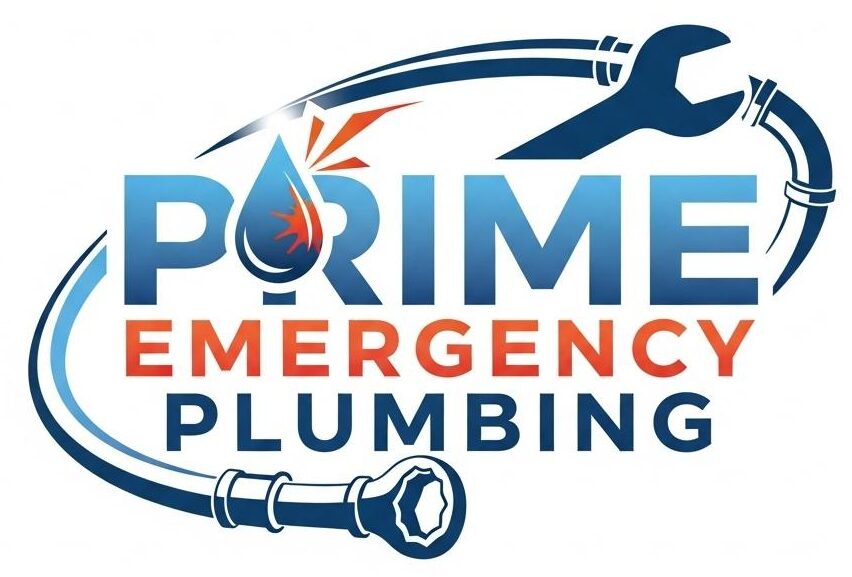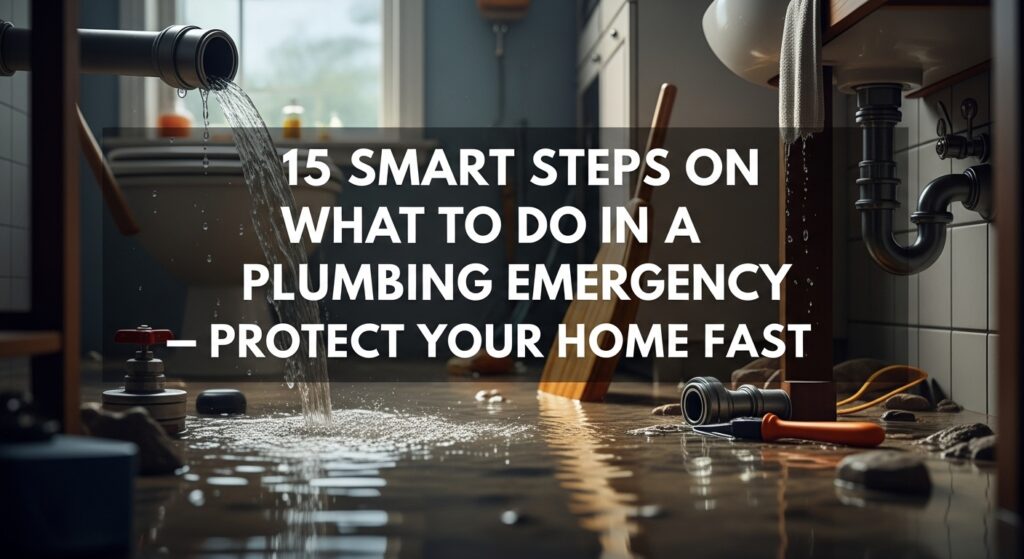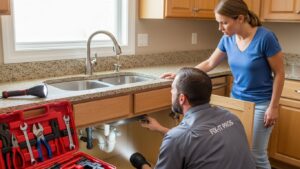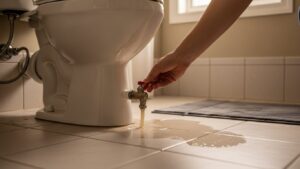Introduction: Why Knowing What to Do in a Plumbing Emergency Matters
When water starts gushing from a broken pipe or your bathroom begins to flood unexpectedly, panic often sets in. But knowing what to do in plumbing emergency situations can save your home from extensive water damage and costly repairs. Acting quickly and following a clear plan ensures safety, minimizes damage, and keeps repair costs under control.
Step 1: Stay Calm and Assess the Situation
The first rule in any emergency is simple—don’t panic. Evaluate where the problem is coming from. Is it a localized leak, a burst pipe, or a drainage backup? Understanding the source helps you take the right action fast. Panicking often leads to mistakes, such as turning on electrical switches or trying to fix something without proper tools, which can make matters worse.
Step 2: Shut Off the Main Water Supply Immediately
Stopping the water flow should be your top priority.
How to Locate Your Main Water Valve
Your main water shut-off valve is usually found:
- Near the perimeter of your home
- In basements, garages, or utility rooms
- Outside near the water meter box
Turn the valve clockwise to stop the water. If you’re in an apartment, call maintenance immediately.
When to Shut Off Local Fixtures Instead
If only one sink or toilet is leaking, turn off the local valve located just below the fixture. This isolates the issue without cutting water to the entire house.
Step 3: Turn Off the Electricity if There’s a Risk of Flooding
Water and electricity are a deadly combination. If flooding occurs near outlets or appliances, turn off the power at your main electrical panel. Never step into standing water to reach it—call a professional electrician if unsure.
Step 4: Stop Small Leaks Using Temporary Fixes
Using Plumbing Tape and Pipe Clamps
Pipe clamps, epoxy putty, or plumber’s tape can temporarily seal small leaks until a professional arrives.
Household Items That Can Help Temporarily
If you don’t have plumbing tools handy, wrap the leak with:
- A thick towel or duct tape
- Rubber patch secured with zip ties
- A bucket underneath to catch dripping water
These quick fixes prevent further damage until help arrives.
Step 5: Clear the Area and Protect Valuables
Move furniture, electronics, and important documents away from the affected area. Water damage can spread quickly through flooring and drywall, so time is crucial. Use towels or mops to absorb excess water.
Step 6: Document the Damage for Insurance Claims
Before cleaning up completely, take photos and videos of the damage. This documentation helps with home insurance claims and ensures you receive compensation for repairs.
Step 7: Call a Professional Emergency Plumber
What to Tell the Plumber When You Call
Provide details such as:
- Where the leak is located
- When it started
- Whether water is still flowing
How to Choose a Reliable Emergency Plumbing Service
Look for:
- 24/7 availability
- Licensed and insured technicians
- Positive online reviews
- Transparent pricing
Step 8: Avoid Using Plumbing Fixtures Until Inspected
Flushing toilets, running taps, or using washing machines may worsen the problem. Wait until the plumber confirms it’s safe.
Step 9: Dry Out the Affected Area
Tools and Techniques for Quick Drying
- Use fans, dehumidifiers, and open windows for ventilation.
- Rent a wet/dry vacuum if needed.
Preventing Mold Growth After a Plumbing Leak
Mold can grow within 24–48 hours, so disinfect and dry affected areas thoroughly to prevent health hazards.
Step 10: Understand Common Plumbing Emergencies and How to React
Burst Pipes
Turn off the main valve, drain faucets, and call a plumber immediately.
Clogged Drains and Toilets
Avoid chemical drain cleaners—use a plunger or auger instead.
Leaking Water Heater
Turn off the power source (gas or electric) and the cold-water supply valve.
Sewer Backup
Stop water use, open windows for ventilation, and call professionals for cleanup and inspection.
Preventing Future Plumbing Emergencies
Regular Maintenance and Inspection Tips
Schedule annual plumbing inspections to catch small leaks early.
Installing Smart Water Leak Detectors
Smart sensors can alert you to leaks even when you’re not home—saving thousands in potential damage.
When to Call Your Insurance Provider
Contact your insurer immediately if the damage affects floors, walls, or major fixtures. Most policies cover sudden and accidental water leaks, but not slow, long-term damage.
Cost of Plumbing Emergencies and How to Save Money
Emergency plumbing services can range from $150 to $600 depending on severity. To save money:
- Maintain your plumbing regularly
- Learn how to shut off your main valve
- Keep a plumbing emergency kit handy
FAQs About What to Do in Plumbing Emergency
What’s the first thing I should do in a plumbing emergency?
Turn off your main water supply to stop the flow and prevent more damage.
Can I fix a small leak myself?
Yes, temporarily using plumber’s tape or epoxy putty until a professional arrives.
How do I find my main water shut-off valve?
Usually near your water meter, basement wall, or outside in a valve box.
Should I call my insurance after a plumbing leak?
Yes, if there’s significant damage or costly repairs.
Can I prevent plumbing emergencies?
Absolutely—regular inspections and smart leak detectors help avoid major disasters.
What’s the biggest mistake homeowners make during plumbing emergencies?
Delaying action or trying DIY fixes without shutting off the main water supply first.
Conclusion: Be Prepared and Protect Your Home
Plumbing emergencies can strike without warning, but knowing exactly what to do in plumbing emergency situations can make all the difference. Quick action, calm decisions, and calling a professional promptly can save your home from serious water damage. Preparation today prevents panic tomorrow. Acting quickly and following a clear plan ensures safety, minimizes damage, and keeps repair costs under control.
👉 Learn more about how to stay safe during home flooding emergencies from the American Red Cross.




